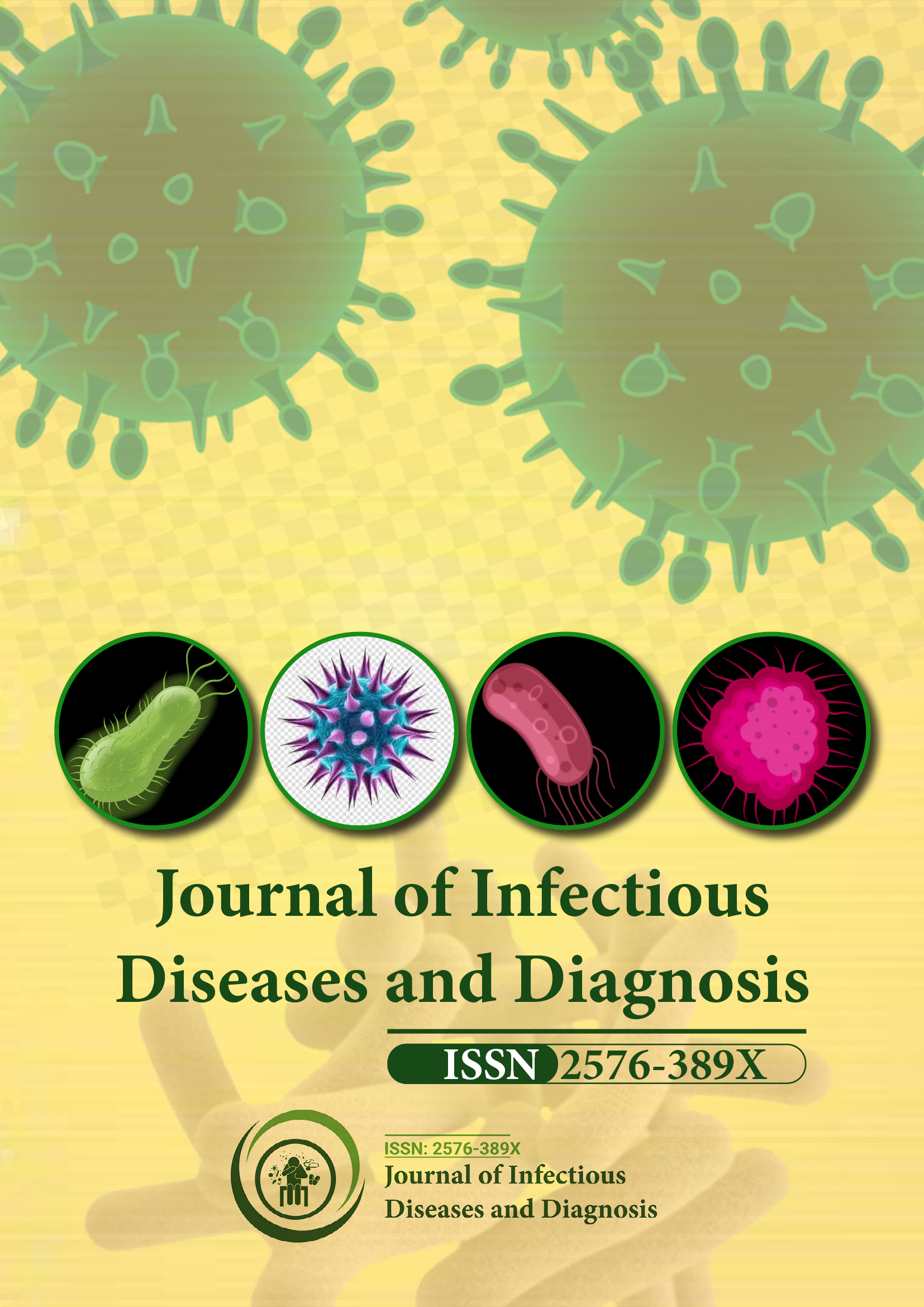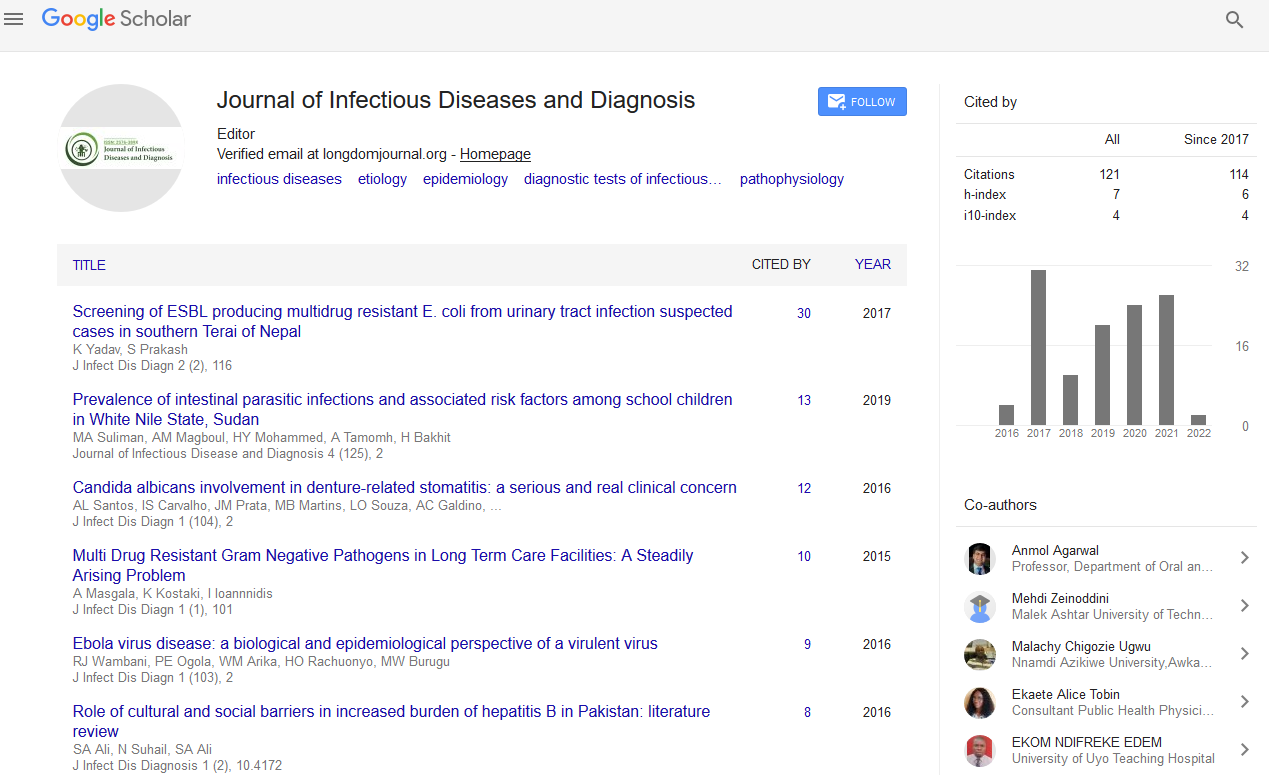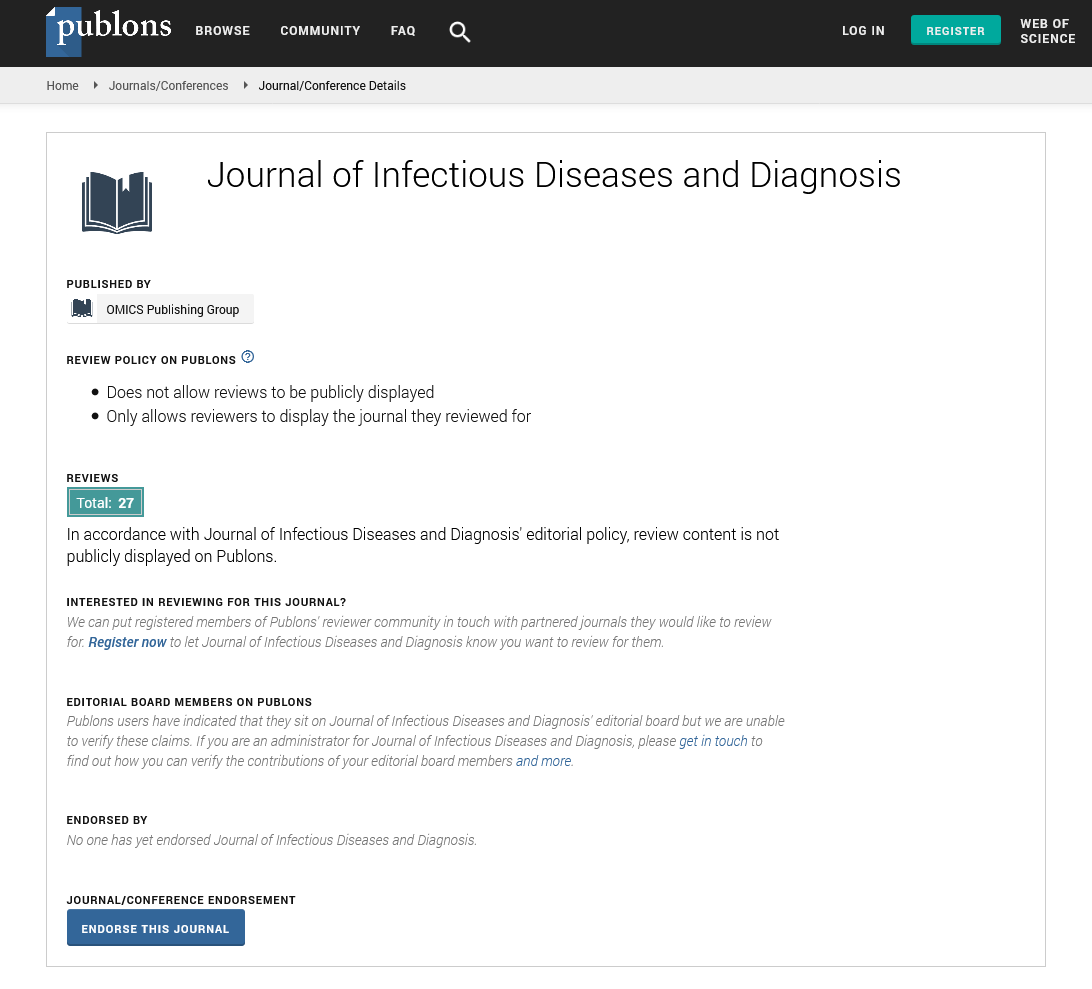Indexed In
- RefSeek
- Hamdard University
- EBSCO A-Z
- Publons
- Euro Pub
- Google Scholar
Useful Links
Share This Page
Journal Flyer

Open Access Journals
- Agri and Aquaculture
- Biochemistry
- Bioinformatics & Systems Biology
- Business & Management
- Chemistry
- Clinical Sciences
- Engineering
- Food & Nutrition
- General Science
- Genetics & Molecular Biology
- Immunology & Microbiology
- Medical Sciences
- Neuroscience & Psychology
- Nursing & Health Care
- Pharmaceutical Sciences
Short Communication - (2020) Volume 5, Issue 1
Nurses “The Frontline Worriers”
Hemant Kumar*Received: 05-May-2020 Published: 26-May-2020, DOI: 10.35248/2576-389X.5.136
Abstract
The World Health Assembly has designated 2020 the International Year of the Nurse and the Midwife. The nursing has been known as the noble profession, demands hard work, dedication, an extraordinary amount of compassion and selflessness for caring the sick and suffering. Indeed nurses are the backbone and blood in healthcare. Further, without nurses and midwives there would be no health care.
Keywords
Nursing; COVID-19; Quarantine; Medical science
Introduction
The COVID-19 Pandemic is raising levels of anxiety worldwide: Beyond hand washing, a key public health directive is social distancing, which entails avoiding public gatherings and generally keeping physical distance from others. None of us could have anticipated the events that are currently supervene. In these times of uncertainty throughout the world nurses are serving as frontline worriers like ever. They make sacrifices and spend more time away from family to care for humanity. The extra effort and dedication being displayed does not go unnoticed. The rest of the world is now seeing what we already know. They’re seeing how crucial nurses are to the health and wellness of our society. Now, more than ever, nurses deserve respect and appreciation from each individual [1-3].
It is necessary to consider health on comprehensive and integrated approach. The current crisis is transforming both our society and our practices. Controlling communicable diseases are always challenging, because every person with or without symptoms might have an impact on others, through direct contact or droplet infection. Therefore, it is mandatory to practice specific along with standard precaution to curtail spread of COVID-19. These are highly stressful circumstances for all health professionals and for our patients. We want to provide them with the best possible nursing care, but at the same time we have to protect ourselves to avoid carrying the virus back home to our families, and to avoid becoming ill ourselves. It is especially hard when you see a colleague become infected with COVID-19.
Nurses return to their homes and their families, after twenty one days of hectic schedule of duties and self quarantine. Many nurses coming to hospital from their home, always mindful of physical and social distancing Wonder whether the corona virus has come in with us, on our clothes or on our skin. When we get into the house, clean the soles of our shoes with soap and water change our clothes. Wash our hands again. It is not possible remember how many times we have washed them today. Our skin is dry and cracked.
• At night, we are agonizing by such questions.
• How many of the patients we saw today will test positive?
• How many more cases will we see tomorrow; in a week; in a month?
• Will we run out of PPEs?
• How many of our colleagues will be infected by this invisible and devastating virus?
Often, we look into the eyes of our companions for hope and the strength to carry on. We are encouraged at the thought of being united in a worldwide nursing community, all of us fighting to save lives. An optimal patient outcome by high quality dynamic nursing care is our mission and commitment.
But our faith in medical science encourages us as well. As of now there are numerous scientists including nurse researcher working in their sophisticated laboratories, committed to finding a solution. After reaching the top of the curve, the day will come when we see the number of cases start to go down. The day will come when we get effective vaccine!
Copingtips for Nurses with the Covid-19 Pandemic “by Dr. Bernadette Melnyk”
If you are feeling anxious and stressed about the COVID-19 pandemic, you are not alone many nurses are experiencing higher than normal stress and anxiety levels right now.
• Breathe deeply: Take five slow deep breaths right now and feel yourself calming down.
• Practice staying in the present moment: Worrying will not change or help the situation; be here now; stay mindful.
• Use cognitive behavioral skills: Remember, how you think affects how you feel and how you behave. If you are having a negative thought (e.g., “I might get the COVID-19 virus and get really sick. ” ), change it to a positive (e.g., “ I will stay healthy by taking good self-care and practicing good infection control practices.”). Repeat these and other positive thinking statements several times a day (e.g., I’m too blessed to be stressed!).
• Read 3 to 5 minutes in a positive thinking book every day before starting work. Positivity will serve as a shield against stress and worry.
• Stay active: Physical activity can help relieve stress. Even daily short walks can help.
• Talk to someone: Tell a family member or friend how you are feeling. Get help if your stress and anxiety is interfering with your functioning.
We are all together.
Updates on Covid-19 Pandemic
The Centres for Disease Control and Prevention (CDC) has added several new symptoms to its list for the COVID-19 (April 29, 2020)
• Chills
• Muscle pain
• Headache
• Sore throat
• Repeated shaking with chills
• Loss of taste or smell
The six new symptoms join the existing list of
• Fever (≥ 100.5°Fahrenheit or 38°Celsius)
• Dry cough
• Shortness of breath
Symptoms Appear Within 2 To 14 Days of Exposure to the Virus People with These Symptoms or Combination of Symptoms May Have Covid-19
Importantly, the "emergency warning signs" for COVID-19 include
• Difficulty in breathing
• Persistent pain or pressure in the chest
• Central cyanosis
• Confusion or an inability to arouse
Conclusion
COVID-19 is a highly contagious disease, hospital-related transmission of the virus is still a very large threat to health-care workers, and nurses are at the front lines of care and are thus more susceptible to infection. We are nurses, and we will continue to face every challenge with courage and enthusiasm, with hope and compassion until defeat the virus for a safe and healthy time to come.
REFERENCES
- WHO. Coronavirus disease 2019 (COVID-19) situation reports. World Health Organization.2020.
- Healthy Nurse Healthy Nation.
- CDC. 2019 Novel Coronavirus (2019-nCoV). CDC.2020.
Citation: Kumar H (2020) Nurses “The Frontline Worriers”. J Infect Dis Diagn. 5.136. DOI: 10.35248/2576-389X.5.136
Copyright: © 2020 Kumar H. This is an open-access article distributed under the terms of the Creative Commons Attribution License, which permits unrestricted use, distribution, and reproduction in any medium, provided the original author and source are credited.


